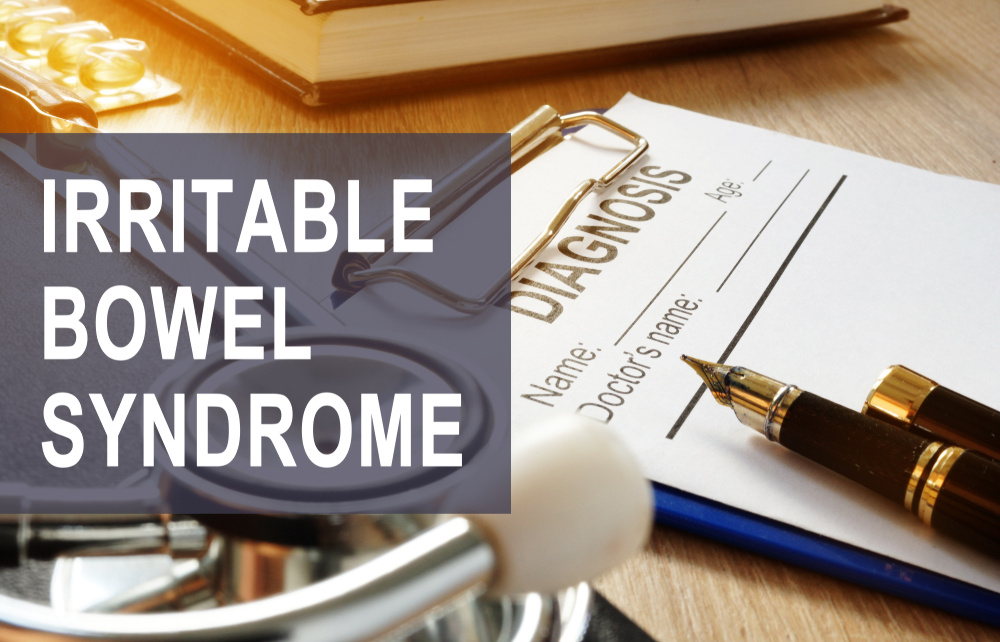Many people don’t see the relationship between using the keto diet for IBS.The ketogenic diet is one of the most popular diets used in different parts of the world. Although popularly used for weight loss, the keto diet has been around for a very long time. It was used as a treatment for epilepsy and seizures. This approach of treatment was applied for a short time, and it was successfully used to treat a number of these health conditions. Presently, as the trend of low carb diet is becoming increasingly popular, the keto diet became known.
The keto diet is marketed as a faster way to achieve weight loss. Many people, including influencers, celebrities, and nutrition experts, even recommend the keto diet for weight loss. But how does the keto diet help one achieve weight loss? Unlike other diets, the focus of the keto diet is in the consumption of healthy fats and a decrease in carbohydrates consumption. This causes the liver to produce ketones from burning fat. The process of producing ketones, which is used by the body for fuel instead of glucose, is called ketosis.
As low carb diets like the keto diet continue to grow in popularity, people often wonder if it is suitable for irritable bowel syndrome and digestive health. This question is of importance because research studies have shown that consuming high-fat meals for prolonged periods can result in symptoms of IBS. The reason for this is that there is abnormally slow gut motility. Others worry that the keto diet may affect gut bacteria. This, too, has been implicated as a factor that causes IBS.
This article discusses the causes of IBS and why the keto diet may be helpful in the management of IBS.
What is Irritable Bowel Syndrome?
Irritable bowel syndrome or IBS is a common disorder affecting the large bowel. It causes changes in the frequency of bowel movement and is usually accompanied by abdominal pain. Some often confuse IBS with another chronic condition called Inflammatory Bowel Disease or IBD. IBD is more severe than IBS and is caused by the inflammation of the digestive tract. Irritable bowel syndrome, on the other hand, can be caused by a combination of several symptoms. These symptoms include abnormal gastrointestinal movement as well as increased awareness of bodily functions.
IBS is diagnosed according to symptoms and not causes. It is usually grouped into four categories based on symptoms, namely IBS-C, IBS-D, IBS-M, and IBS-U. In IBS-C, constipation is the most common symptom, while in IBS-D, diarrhea is the most common symptom. The remaining two categories feature a mix of both diarrhea and constipation for one and an absence or rare occurrence of these digestive issues for the other. IBS-M is the one that is characterized by mixed symptoms, whereas IBM-U features hypertension as the main issue. Another major symptom in people suffering from IBS-U is pain.
Possible Causes of Irritable Bowel Syndrome
The exact cause of IBS is not entirely understood. However, there are certain factors that have been mentioned earlier. These factors may predispose one to get IBS. Some of these factors include genetics, infection, and even trauma. Symptoms of irritable bowel syndrome appear when there are disturbances in the motility of the colon. It could also result from increased sensitivity to gas, food, or stool in the bowel. Eating, gaseous distension, and stress can also make the bowel over-reactive. When the bowel is in this state, it can bring about the symptoms of IBS.
Infections caused by bacteria and viruses can cause symptoms of IBS. It could be caused by an overgrowth of bacteria in the intestines or even by changes in the bacteria in the gut or microflora. Stress may also cause IBS. It can activate the nerves that link the brain and the gut for prolonged periods. This leads to bowel problems that could bring about symptoms of IBS in an individual. Psychological trauma may also cause IBS and ultimately results in stress, which in turn predisposes the individual to IBS.
The Keto Diet For IBS: How It Helps Symptoms
Keto diet may help reduce inflammation: Inflammation is common in people suffering from irritable bowel syndrome. Inflammation could be as a result of high blood sugar. There is a spike in blood sugar when meals that are high in carbohydrates are consumed. The inflammation can result in the symptom of increased sensitivity to pain that some who have IBS experience. On keto, low carb meals are encouraged, and this can help reduce inflammation. When the body is in the state of ketosis, the body produces ketones which it uses as fuel. Some of these ketones may be able to reduce inflammation.
Keto diet may help manage stress and anxiety: As already mentioned, stress and anxiety are factors that can cause symptoms of IBS. Stress can cause the cells to lose their function, resulting in inflammation. Managing eating habits can help reduce the stress the cells experience. The ketogenic diet helps an individual achieve ketosis. When the body is in ketosis, ketones are produced that can help with anxiety. A low carb diet like the keto diet may also be able to change the neurotransmitter balance in the brain. People with IBS who are on the keto diet may thus experience relief from anxiety.
Keto diet may help improve the level of healthy gut bacteria: Abnormal changes in the gut bacteria have been linked to the symptoms of IBS. In one study, it was discovered that diets that involve the exclusion of a specific nutrient like the ketogenic diet might help in correcting intestinal microbiota. The study showed that the keto diet was able to promote the reduction of harmful bacteria and promote an increase in the level of healthy gut bacteria.
Keto diet may help lower insulin levels: When people first start the ketogenic diet, they may experience improved insulin resistance. The ketones produced as a result of ketosis may be responsible for the insulin resistance. In one study, the symptoms of IBS were improved with lower insulin levels. When insulin levels are high, it can result in inflammation and affect gut bacteria.
Keto diet eliminates wheat intolerance: The whole idea of the keto diet is that healthy fats are consumed and carbohydrates are consumed in very small quantities. Some carbs like grains are also eliminated and replaced with keto-friendly alternatives. One of the factors that can trigger symptoms of IBS is food intolerance. Some people have a wheat sensitivity, and this could trigger these symptoms. Since the keto diet eliminates wheat, it may be able to provide relief for those whose symptoms are triggered by wheat.
Conclusion– Keto Diet and IBS
Irritable bowel syndrome is a growing cause of digestive health problems. It is classified based on the symptoms a patient presents with at the time. Usually, constipation, diarrhea, or a mix of these digestive health issues are common symptoms. Although the causes of IBS are not known, there are several factors that may predispose one to get IBS. It is also possible to manage the symptoms of IBS using low-carb diets like the keto diet. First, it is best to speak with a physician to know if the symptoms are as a result of IBS. This is important since several other health conditions may have similar symptoms as IBS. The keto diet can help by helping to reduce inflammation, managing stress, and lowering insulin levels.
As a result, the keto diet and IBS management is absolutely possible and advised.



